Fiction. Whether it be through books, television, or film, it allows us to inhabit a world away from reality. To reside, and experience life through the eyes of fictional characters beyond the existence of the chronic illness.
The ability to escape into fictional worlds away from the grim reality of pain and illness is a welcome relief. However, as this reality is isolating, we often crave for fiction to become a mirror; one that reflects our feelings and experience and the truth of living with chronic illness. To spend time with characters with whom we can relate. Those that make us feel less alone, in a world that makes us feel alone in our struggles.
"We often crave for fiction to become a mirror; one that reflects our feelings and experience and the truth of living with chronic illness." Click To TweetLack of Representation of Chronic Illness in Books and Mainstream Television
The problem, however, is that there is an evident lack of representation of chronic illness in books and mainstream television. The portrayals that do exist do so at the end of two opposing spectrums. Either they paint the very worst-case scenario or a tear-jerking account of triumph over adversity and sugary optimism. There seem to be few realistic depictions of the stark, painful truth of life with a life-long condition. Those living with such afflictions either portrayed as brave and inspiring. Or otherwise painted as being fragile and in need of taking care of by others who are more capable.
"There seem to be few realistic depictions of the stark, painful truth of life with a life-long condition. Those living with such afflictions either portrayed as inspiring. Or they are otherwise painted as being fragile." Click To TweetSadly, there is room for improvement regarding the representation of chronic illness on television. Firstly, there seems to be a distinct lack of characters exhibiting chronic conditions on mainstream television. When there are, however, it does so with little realism of the truth of what living with illness entails. When a television series announces a storyline regarding chronic illness, is met with interest and anticipation. Very often, however, it turns quickly to disappointment. Such storylines hold great promise, at first, successful at raising awareness of the issues portrayed. However, as the storyline ends, there is very little continuation surrounding illness and its impact.
"Storylines featuring chronic illness at first are successful at raising awareness, but often there is very little continuation surrounding illness and its enduring impact." Click To TweetIllness Remains Invisible and Ignored in Fiction
Chronic illness remains invisible and ignored in its representation in fiction. In a way implying that those struggling with chronic illness are not tragic enough to be seen or their voices heard. We want content that can guide us, and give us direction on how to live well with chronic illness. We want fictional characters to whom we can look up to and learn how not to be dictated by disease.
"Chronic illness remains invisible and ignored in its representation in fiction. In a way implying that those struggling with such issues are not tragic enough to be seen or their voices heard." Click To TweetHowever, that is not to say that we cannot relate to or find lessons within fiction that do not feature chronic illness. The following are books and television characters that have taught me about how to cope with a neurological disorder.
"These are the books and fictional television characters that, although they do not feature chronic illness, have still taught me about how to cope with living with a neurological disorder." Click To TweetWhat Can Fiction Teach Us About Living With Chronic Illness?
Little Women: We gain strength and resilience from the storms in life
A classic book that has been my favourite reading material since I first read it as a young child. A book that resonates, as the four March sisters navigate their way from childhood to become young women. Each aware of their strengths and weaknesses and make their tumultuous journey toward womanhood to become the best version of themselves.
There is one quote that as someone living with the adversity from illness has continued to resonate.

The quote is apt for someone navigating an uncertain future. Living with chronic illness, we experience many ups and downs, thrust into flares and severe exacerbations in our symptoms. This quote reminds me, however, of the growth and resilience gained from the difficult and painful moments in life. Enduring a flare as distressing and painful as it is, it also helps develop improved coping skills in time for the next one.
"'Little Women' has taught me the growth and resilience gained from experiencing difficult and painful moments as a result of chronic illness. It's continued presence helping to improve useful coping strategies." Click To TweetLes Miserables: There will always be a brighter tomorrow
Most famously, the longest-running musical ever, it is, famously based upon the book written by Victor Hugo. A story of love, loss, and revolution, the characters struggle to overcome great adversity. A story in which the characters begin to lose hope due to the struggles they endure.

When facing continuing battles and worsening symptoms, it is too easy to lose hope. However, there is one quote that inspires, declaring that tomorrow is a new day and in which holds new beginnings. The quote is a reminder that no matter how hard the struggles we face, there is a chance for a better tomorrow.
"Despite the gloomy tone of 'Les Miserables' it is still one that inspires hope for a brighter and happier tomorrow." Click To TweetHarry Potter Series: Hope and positivity can help bring us out of the darkness
Like for many, the Harry Potter series of books became a staple of my adolescence and young adulthood. These books delighted both children and adults alike, comprising many life lessons within its pages.

Living with the difficulties and limitations illness entails, it can so easy to succumb to the darkness; remaining there when we are no longer able to cope with the pain. However, Dumbledore reminds us that we all contain the power to bring ourselves out of the darkness with a spark of hope. Although we cannot always control what happens to us, we can choose how we respond to circumstances beyond our control.
Of course, these books also taught us to believe in magic!
"Harry Potter contains many powerful and profound lessons. As someone living with chronic illness, Dumbledore has taught me that although we cannot control what happens to us, we do have the choice on how we respond." Click To TweetOliver Queen (Arrow): You are stronger than you believe
It can be hard to find anything relatable in characters from comic books, or the ever-popular superhero shows. Featuring characters who can swing above rooftops, or can fly or travel at the speed of light, makes these fictional worlds unrealistic. What makes Oliver Queen, or the Green Arrow interesting is that he is one of the few superheroes without any superpowers. And a common thread in the origin stories of superheroes is that with suffering comes an opportunity to learn and be better.
As someone living with chronic illness, it can be challenging to relate with such characters. Unlike the repercussion of their crisis, we do not gain superhuman powers or abilities. The gift of the suffering of illness is the awareness that we are stronger and more resilient than we ever believed we could be. Living with the plight of debilitating symptoms, we do not know how strong we are until we have no other choice but to be. Oliver learned this during his own five years in hell. As without inner strength, he would not have survived, and not becoming a hero as a result.
"Living with the plight of debilitating symptoms, we do not know how strong we are until we have no other choice but to be. Something Oliver Queen learned this during his own five years in hell." Click To TweetTemperance Brennan (Bones): Always be unapologetically you
Crime dramas are my favourite genre and continue to be fascinated with the methods used to provide justice for victims. One of my favourite procedural shows is Bones. ‘Bones’ is the nickname of Temperance Brennan, a forensic anthropologist who examines bones to determine how a person died and by whom. I found her to be a truly inspiring character, impressed by her brilliance.
In one episode, her partner Booth takes a photograph of her weeping over a dead body thanks to pregnancy hormones. When Booth dismisses it as normal, she protests in her usual emphatic fashion that “I’m not normal, I’m extraordinary.”
It’s a beautiful reminder that we should not apologise for who we are. And that we should celebrate everything that makes us the unique individual we are. For years, I felt ashamed of the person I am; the person illness made me. But, Brennan and all her quirks teach us to celebrate who we are unapologetically.
"For years, I felt ashamed of the person I am; the person illness made me. But, Temperance Brennan and all her quirks teach us to celebrate who we are unapologetically." Click To TweetBrennan is aware of her worth and not ashamed to boast of her best qualities and achievements. Maybe we could all take a leaf out of her book!
Jane Doe/Remi/Alice Kruger (Blindspot): We do not have to be defined by what happens to us
When we first meet Jane, she is crawling out of a duffel bag in the middle of Times Square. As she emerges, she is completely naked apart from the intricate tattoos that cover her whole body. Suffering from drug-induced amnesia has taken away Jane’s knowledge of herself and everything she once knew.
When I first watched the pilot episode, I found that I resonated with Jane. When diagnosed with a life-long condition, there are many unknowns and questions to navigate. Just like Jane Doe. Through the course of the series, Jane begins to find herself despite her lack of memories. Jane even becomes a part of the FBI team investigating her and the tattoos that points them towards criminal investigations.
The show reminds us that we do not have to be defined by the significant life-changing experiences that we face. The story is a lesson that we can choose not to be defined by chronic illness. There is much more to us beyond being ill. Something which Jane herself learns when she discovers new abilities which include fluency in several languages and a talent for hand to hand combat. Instead, we can forge our chosen path in life. Just like Jane, we can choose the person we want to be, instead of being determined by illness.
"'Blindspot' reminds us that we do not have to be defined by the significant life-changing experience that we face. It is a lesson that we can choose not to be defined by chronic illness." Click To TweetI would love to hear your thoughts; what have you learned from a fictional book or characters?
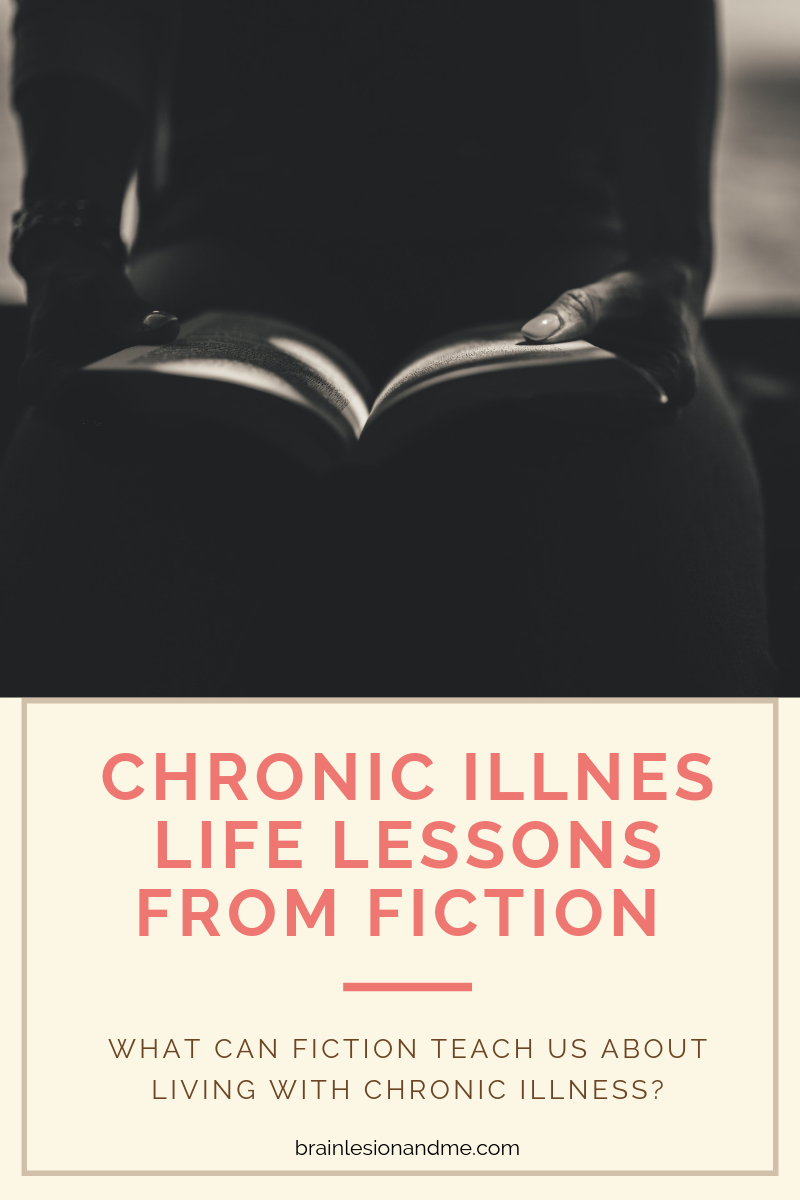
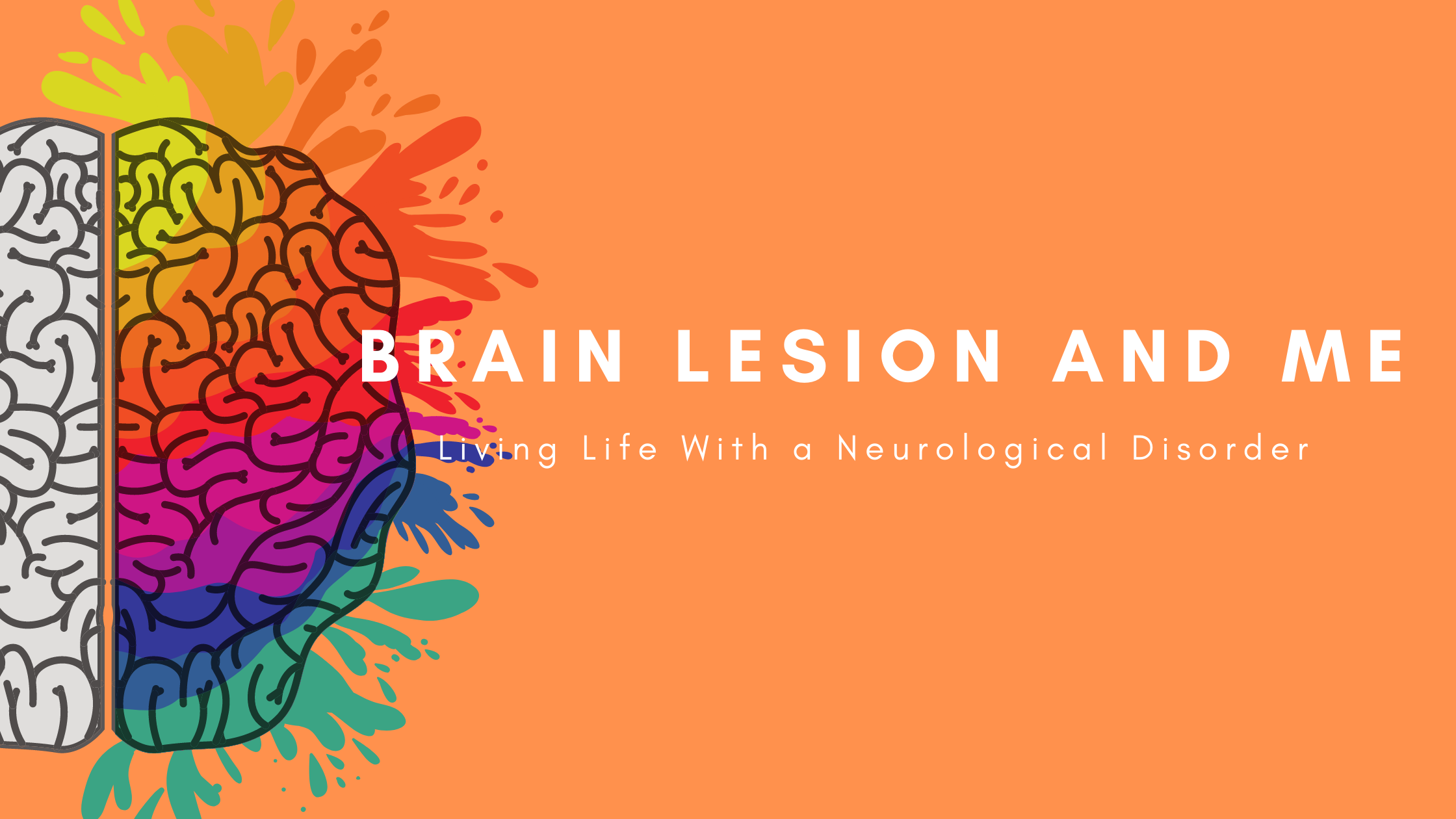
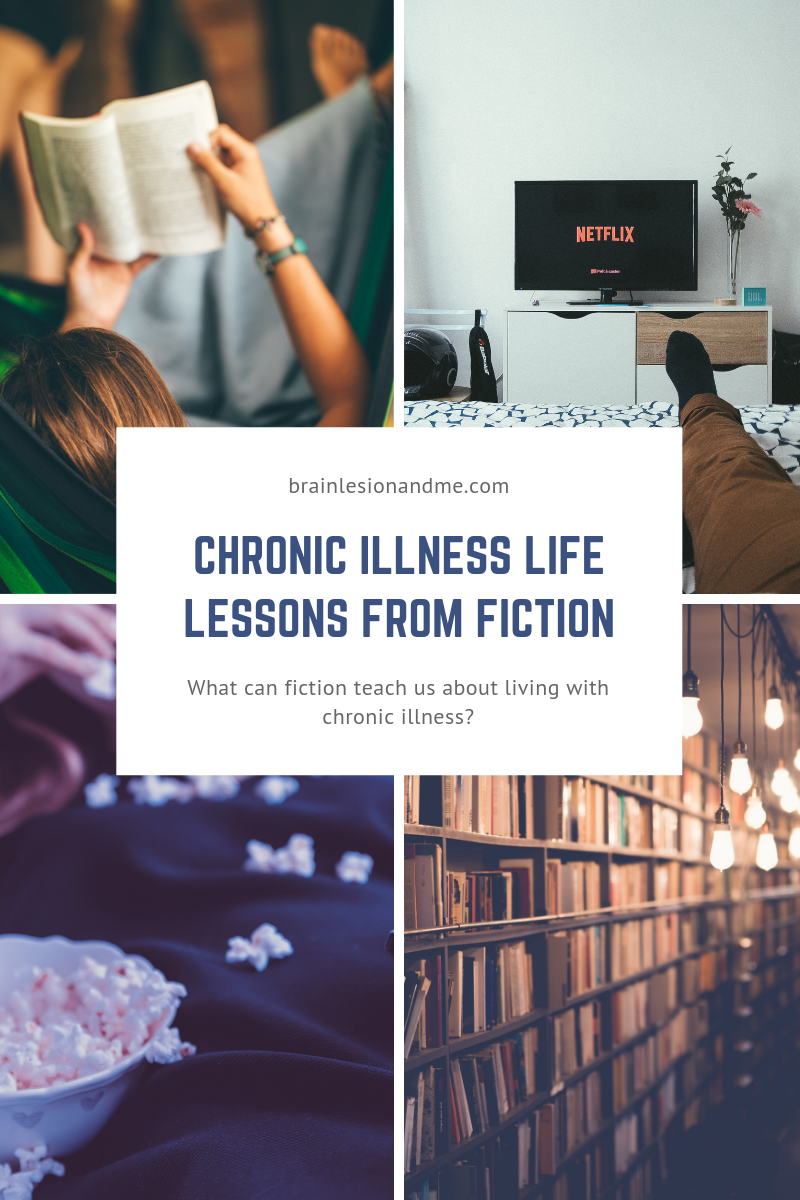
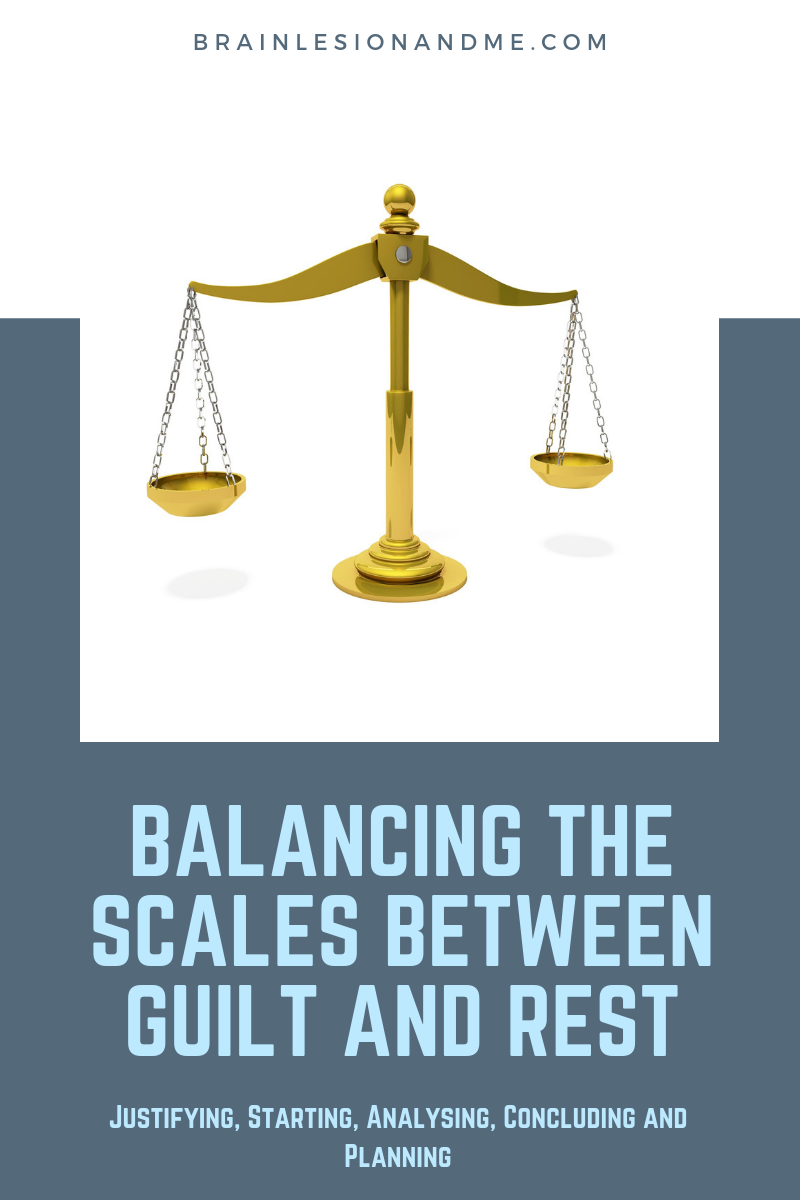



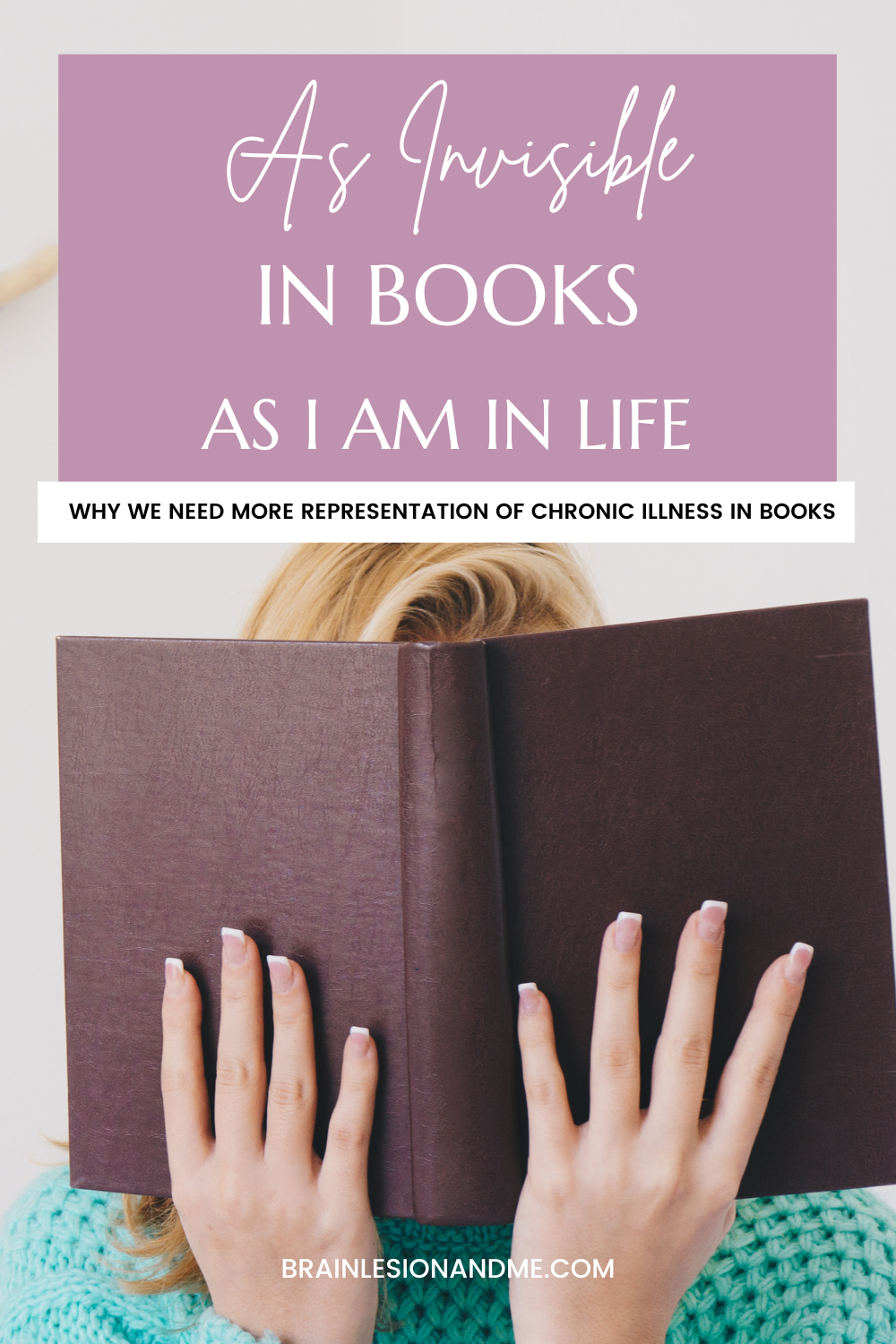
Caz / InvisiblyMe
Such an interesting post, and you’re right, chronic illness is definitely under represented and even when it is, the portrayal is quite stereotypical. As you say, it’s the extreme of inspiring versus weak. I also think any characterisation typically lacks depth, it doesn’t even touch the surface of the reality of day to day life with chronic illness.
Great choices for where you can learn something about life and take something away from the content or characters. I love Temp Brennan! I’ve never seen Arrow but it was recommended to me a while ago, I’ll have to add that to my to-watch list. I think it must be very difficult to portray the reality of chronic illness in books or films, partly because of just how complex the issue is and the limit on time/pages in which to cover it and do the character justice. But I think authors and screen writers can be more mindful of their audience and wider societal issues, illness and disability included.
Great post, Rhiann, a fascinating one!
Caz xx
Rhiann Johns
Thank you so much, Caz for your lovely feedback to the post. It’s an interesting topic as I a not sure which is more frustrating – the seeming lack of representation within fiction both on screen and in books, or when the representation that does exist portrays the issues stereotypically and without any depth. The medical side can also be extremely frustrating, I am constantly wondering why there aren’t more doctors like there are on TV as they seem to be so much more compassionate and helpful in the fictional world!!
Ava Coulter
Wow, thank you for this post! I’m a writer, and the book I’m currently working on features a character with a chronic illness. I really want to portray her illness in an empathetic and accurate way that makes people feel seen and empowered. This post is super helpful and informative, and I also love how you gave examples of fictional characters and the lessons that they teach us. I’ve definitely seen a lack of this topic in fiction and media, and what I have seen portrays chronic illness in inaccurate and stereotypical ways, and is even damaging to the readers. I really want to change that and touch people with my story, so thank you again for this wonderful article!